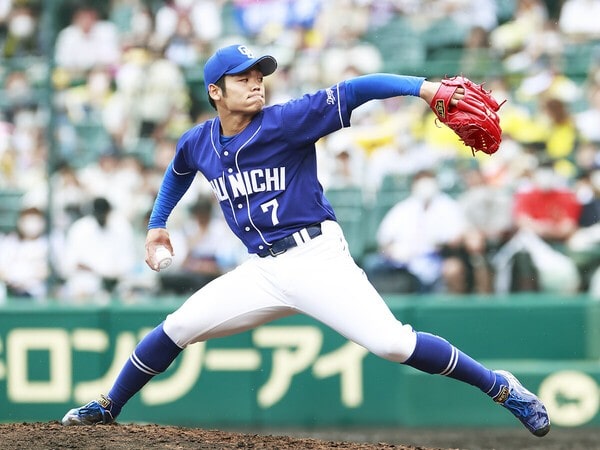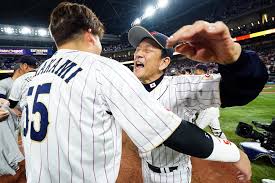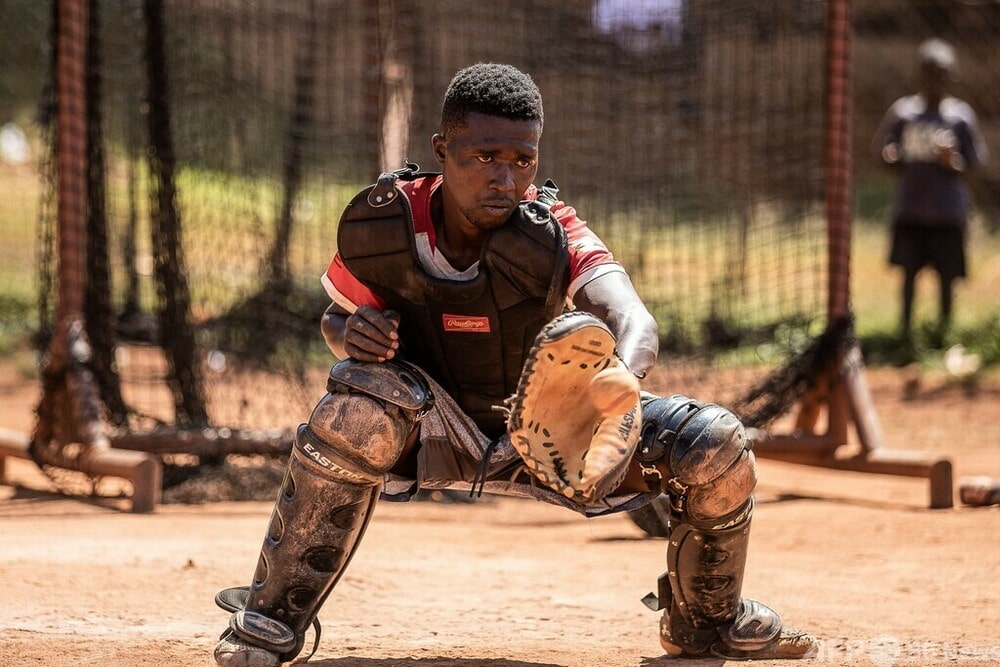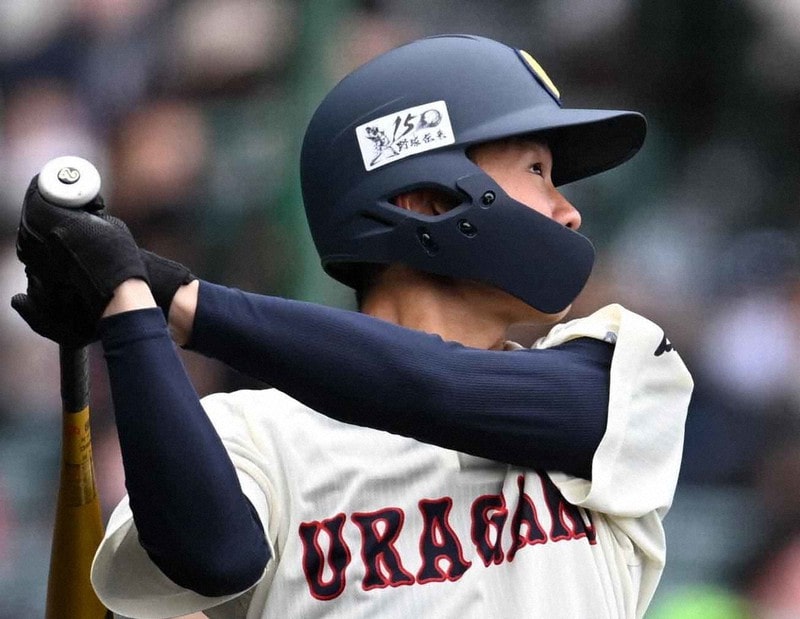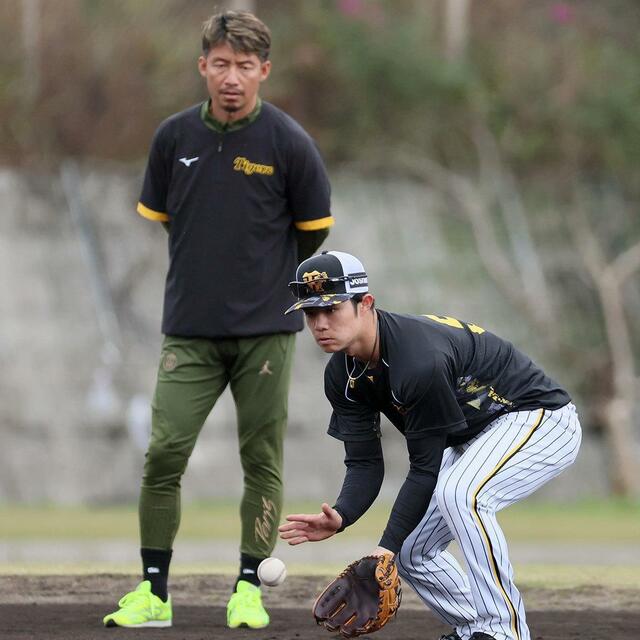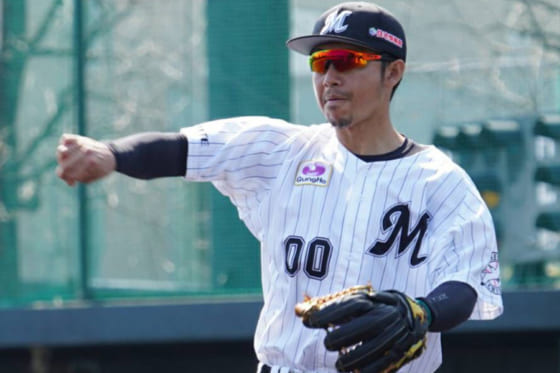
For those aiming to become a baseball coach, whether or not they have qualifications and how to obtain them is an important point.
In this article, we will explain in detail the types of qualifications required for baseball coaching, how to obtain them, and the actual career path.
Based on the latest information, we will introduce you to the steps to succeed as a coach.
目次
- 1 Basic Roles and Responsibilities of a Baseball Coach
- 2 What qualifications do you need to be a baseball coach?
- 3 How to Get a Baseball Coaching Certification
- 4 The difference between professional and amateur baseball coaches
- 5 Career path as a baseball coach
- 6 Skills and traits required for baseball coaching
- 7 What is expected of future baseball coaches?
Basic Roles and Responsibilities of a Baseball Coach
Baseball coaches have a wide range of roles and responsibilities to maximize their team’s performance.
Their guidance and support directly translates to the development of the players and the success of the team.
Here we will take a closer look at the coach’s role, its importance to the team, and the specific duties of the coach.
The role of the coach and its importance to the team
-
One of the most important roles of a coach is to develop players. In addition to providing technical guidance, they also provide tactical support and mental support. They are required to maximize the abilities of each player and guide them to reach their potential. The presence of a coach is especially important for young players in their development process.
-
Team tactical planning The coach designs the tactics for the match. Based on the analysis of the opposing team, he or she devises effective tactics and gives appropriate instructions to the players. Another important role of the coach is to decide on tactical changes and player substitutions during the match. This allows the team to turn the tactics in their favor and aim for victory.
-
Maintaining Motivation Coaches also play a role in maintaining the motivation of their players. They provide appropriate feedback and encouragement to improve performance in practice and games. It is important to raise the morale of the entire team and foster a sense of unity.
-
Communication Coaches are required to maintain good communication with players and other staff members. By understanding the players’ opinions and feelings and responding appropriately, they build trust. This improves the performance of the entire team.
Specific duties of a baseball coach
-
Creating and implementing training plans Coaches create training plans to improve the abilities of players. These include drills aimed at improving basic skills and practical exercises to deepen tactical understanding. During training, they provide specific advice to players and support them in correcting their skills.
-
Match preparation and tactical design In preparation for a match, the coach analyzes the opposing team and formulates the best tactics. During the match, he gives precise instructions to the players and changes tactics as necessary. He also makes decisions about substituting players and changing positions, and plays a role in moving the game in his favor.
-
Feedback and Evaluation After practice and games, coaches provide feedback to players. This is important for players to reflect on their performance and identify areas for improvement. Feedback should be specific and constructive. It also evaluates players’ development and provides advice for the next step.
-
Mental support Coaches also provide mental support to help players perform at their best in matches. They help relieve pressure and tension and create an environment where players can play with confidence. Coaches’ mental support is especially helpful in important matches and difficult situations.
-
Managing the training program The coach also manages the physical training program for the players. This includes strength training and exercises to improve stamina. It is necessary to constantly check the physical condition of the players and provide them with appropriate training.
-
Scouting and Recruiting Players Coaches will scout and recruit promising players to improve their team. This includes attending games and evaluating player performance. Finding and recruiting talented players will help ensure the team’s long-term success.
Baseball coaches have a wide range of roles and responsibilities, including developing players, designing team tactics, and providing mental support.
Their guidance and support directly translates to the development of the players and the success of the team.
By fully understanding your role as a coach and fulfilling your responsibilities, you can maximize the performance of the entire team.

What qualifications do you need to be a baseball coach?
To become a baseball coach, you need specialized knowledge, skills, and the appropriate qualifications.
Here we will explain in detail the general qualifications required for coaches and the types and contents of officially recognized qualifications in Japan.
General qualifications required for coaching
-
Coaching qualificationsIn order to work as a baseball coach, you need a coaching qualification. This is a qualification to learn the basics of coaching and provide appropriate guidance to players. By obtaining a coaching qualification, you will acquire basic knowledge and skills as a coach and be able to teach players with confidence.
-
Knowledge of sports science Baseball coaches are required to have knowledge of sports science. This includes exercise physiology, sports psychology, and nutrition. This knowledge is essential for improving the physical fitness of players, providing mental care, and managing their nutrition properly. Knowledge of sports science will help you maximize your players’ performance.
-
Knowledge of first aid and emergency care During baseball games and practice, injuries and emergencies can occur. It is important for coaches to have knowledge of first aid and emergency care. Coaches are required to acquire this knowledge in order to respond appropriately to ensure the safety of their players.
-
Communication skills: Coaches are required to have good communication skills with players and other staff. Effective communication is necessary to instruct players in an easy-to-understand way and to motivate them. In addition, cooperation with parents and other related parties is also important, so a wide range of communication skills is required.
Types and contents of officially recognized qualifications in Japan
-
The Japan Sport Association Certified Sports Instructor Certification issued by the Japan Sport Association (JSPO) is an important qualification for baseball coaches. The purpose of this qualification is to popularize sports and improve competitive ability, and you can learn basic knowledge and skills as a coach. To obtain the qualification, you must attend a seminar and pass an exam.
-
The Baseball Federation of Japan (BFJ) also issues official certification for baseball coaches. The BFJ official certification has a different curriculum for each level, and you can learn in stages from beginner to intermediate to advanced. At each level, you will acquire knowledge not only of baseball techniques but also of tactics and mental training.
-
Certified coaching qualifications (from assistant to head coach) In Japan, each sports organization may have its own coaching qualifications. For example, the Nippon Professional Baseball (NPB) certified coaching qualifications can be obtained in stages, from assistant coach to head coach. At each stage, you acquire the necessary knowledge and skills and pass the exam to obtain the qualification.
-
There are also qualifications for coaching at local sports clubs and schools. The purpose of the local sports coaching qualification is to promote sports in the local community, and you will learn the knowledge and skills to provide instruction rooted in a specific area. It is often issued by local sports associations or boards of education.
-
Sports trainer qualifications are qualifications for providing physical care and training guidance to athletes. There are certified sports trainer qualifications issued by the Japan Amateur Sports Association (JASA), and you will learn the knowledge necessary to improve athletes’ physical fitness and prevent and respond to injuries.
To become a baseball coach, obtaining these qualifications will enable you to prove your knowledge and skills as a coach and provide appropriate instruction to players.
Gain professional knowledge and take the first step towards building your coaching career through qualification.
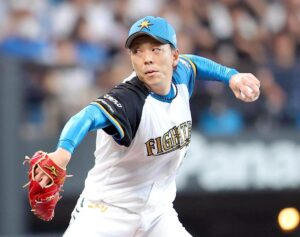
How to Get a Baseball Coaching Certification
In order to become a baseball coach, it is important to obtain the proper qualifications.
The qualification process involves certain requirements and procedures, which require you to attend courses and seminars.
Here we will explain in detail the conditions and process required to obtain the qualification, as well as how to participate in courses and seminars.
Requirements and process for obtaining qualifications
-
Basic Requirements The basic requirements for obtaining a qualification include age and experience. For most qualifications, you must be 18 years of age or older, and it is preferable that you have a certain amount of baseball experience or coaching experience. Some specific qualifications may require experience as a professional baseball player or amateur coaching experience.
-
The first step in obtaining a qualification is the application process. Obtain an application form from the official website or secretariat of the organization issuing the qualification, fill in the necessary information, and submit it. At this time, you may be required to pay an application fee or course fee. When applying, you may also be required to attach necessary documents and photos.
-
Many qualifications require you to take a basic course . In this course, you will learn basic baseball techniques, coaching methods, and basic knowledge of sports science. The course is usually held over several days and includes both practical training and classroom learning. The content of the course is designed to give you the basic skills required to be a coach.
-
After completing the course, you will take a practical exam and a written exam. The practical exam will evaluate your teaching and playing skills. The written exam will test your knowledge of baseball rules, tactics, and sports science. By passing the exam, you will meet the requirements to obtain a qualification.
-
Certification Process After passing the exam, you will move on to the certification process. Depending on the organization issuing the certification, you may be required to submit additional documents or attend a final interview. Once the entire process is complete, you will be officially certified and your certificate will be issued.
How to participate in courses and seminars
-
Check the course schedule Courses and seminars for obtaining qualifications are held multiple times throughout the year. Check the course schedule on the official website or contact information of the organization that issues the qualification. Check the location, date, time, and content, and choose a date that fits your schedule.
-
Once you have decided which seminar to attend, you will need to apply. You may apply online through the official website or by mailing the application form. To apply, you will need to pay a participation fee. The participation fee varies depending on the seminar content and location, so be sure to check in advance.
-
Necessary PreparationsYou need to prepare in advance to participate in the seminar. It is effective to prepare the teaching materials, tools, and writing utensils to be used in the seminar and to study the contents of the seminar in advance. Also, since the practical training includes exercise, be sure to wear comfortable clothes and sports shoes.
-
On the day of the seminar , arrive at the venue with plenty of time to check in. During the seminar, listen carefully to the instructor’s guidance and focus on improving your skills and knowledge. If you have any questions or concerns, it is also important to proactively consult with the instructor.
-
Follow-up Even after the course has ended, it is important to follow up to apply what you have learned to your actual teaching. Some organizations that issue qualifications hold regular training sessions and seminars. By participating in these, you can continue to learn the latest teaching techniques and knowledge.
To obtain a baseball coaching qualification, you must meet basic requirements, complete the application process, attend courses and seminars, and pass an exam.
By participating in courses and seminars, you can acquire practical teaching techniques and knowledge of sports science and improve your skills as a coach.
By obtaining qualifications, you can become a coach that your players can trust.
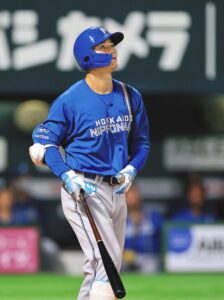
The difference between professional and amateur baseball coaches
There are big differences between professional baseball coaches and amateur coaches in terms of the people they coach, the environment, and their roles.
We will explain in detail what role each coach plays and what qualifications and experience are required.
The difference between the roles of professional and amateur coaches
- The role of a professional baseball coach Professional baseball coaches play a role that is directly connected to improving the skills of professional players and the team’s victory. Their main duties are to maximize the performance of each player and to instruct them on game tactics. Specifically, this includes technical instruction on batting, pitching, and field play, planning game strategies, providing mental care for players, and giving real-time instructions during games.
Professional coaches provide detailed guidance on players’ form, including fine-tuning and tactical details. They use video and data analysis to evaluate players’ movements and suggest ways to improve. They are also required to have advanced judgment skills, such as giving advice to players in real time during games and reading the flow of the game to change tactics.
- The role of amateur coaches Amateur coaches work for high schools, universities, and local club teams, and are responsible for developing players and building the team’s foundation. Their main role is to teach the basics of technique and convey the importance of team play. Amateur coaches also have the important role of creating an environment where players can learn baseball while having fun, and fostering sportsmanship and teamwork.
In order to promote the growth of each individual player, amateur coaches not only provide technical instruction but also support with academics and daily life.
They teach with an emphasis on communication and encouragement so that players can grow as people through baseball.
Additionally, an important role will be to boost morale across the team and prepare for matches.
Required qualifications and experience differences
- Qualifications and experience required for professional baseball coaches To become a professional baseball coach, you need extensive baseball experience and specialized qualifications. In many cases, you will need a track record as a professional player, and many people start their coaching career after retiring. Experience as a professional player is very useful when it comes to judgment and technical instruction in actual games.
It is also recommended that players obtain official coaching qualifications issued by the Nippon Professional Baseball Organization (NPB) or each team. This will allow them to learn the latest coaching methods and tactics. In addition, knowledge of sports science and data analysis is also an important skill for modern professional baseball coaches.
- Qualifications and experience required for amateur coaches Amateur coaches do not have as strict qualification and experience requirements as professional baseball coaches, but they do need basic qualifications and experience as coaches. It is common for coaches to obtain official coaching qualifications issued by the Japan Sport Association (JSPO) or the Baseball Federation of Japan (BFJ). By obtaining these qualifications, you can acquire basic coaching skills and knowledge.
Even if an amateur coach does not have experience as a professional player, their extensive experience as an amateur player and coaching experience are valued.
Additionally, educator qualities and communication skills when working with children are also important.
The experience gained through teaching at school or volunteering in the community will also be useful in your work as an amateur coach.
Professional baseball coaches and amateur coaches have different roles and responsibilities, and the qualifications and experience required are also different.
Professional baseball coaches need extensive baseball experience and professional qualifications in order to provide advanced instruction that directly leads to players’ skill improvement and team victory.
On the other hand, amateur coaches focus on developing players and teaching basic techniques, and are required to have educator qualities and communication skills.
Understanding the roles and responsibilities of each coach and having the appropriate qualifications and experience will contribute to player development and team success.

Career path as a baseball coach
The career path as a baseball coach differs at each level, such as high school baseball, college baseball, and professional baseball, and the experience and qualifications required at each stage also differ.
Here we will explain in detail how to become a coach in high school, college, and professional baseball and how to develop a career at each level.
How to become a high school baseball coach
-
Required qualifications and experience To become a high school baseball coach, you need basic qualifications as a baseball coach. It is common to obtain coaching qualifications issued by the Japan Sport Association (JSPO) or the Japan High School Baseball Federation (JHBF). It is also helpful to have a high school teaching qualification. Many high school baseball coaches have experience as former high school baseball players or college baseball players.
-
How to build your careerTo build a career as a high school baseball coach, it is common to first gain experience as an assistant coach or volunteer coach. By gaining coaching experience in school or local baseball teams, you can improve your coaching skills and communication skills with players. It is also important to participate in coaching seminars and training sessions to learn the latest coaching methods.
-
Networking: To become a high school baseball coach, networking in the baseball world is also important. By building relationships with current coaches and leaders and exchanging information and receiving advice, you can improve your knowledge and skills as a coach. Deepen your connections with coaches and scouts from other schools by attending tournaments and watching games.
How to become a college baseball coach
-
Required qualifications and experience To become a college baseball coach, you will need experience coaching high school baseball and additional coaching qualifications. It is common to obtain coaching qualifications offered by the Japan University Baseball Federation (JUBF) or each university. In addition, experience playing at the college level or experience as an assistant coach on a college baseball team will also be useful.
-
How to build your careerTo build a career as a college baseball coach, it is common to first gain experience as an assistant coach or trainer. In order to get a position on a college baseball team, past playing experience and recommendations are important. In addition, you are required to actively participate in courses and seminars both inside and outside the university to learn the latest coaching techniques.
-
Balancing research and education University baseball coaches not only provide instruction, but also support the players’ academic and career development. They are often involved in educational activities and research at the university, so their skills as educators are also important. They are required to provide technical instruction in baseball while supporting the players’ academic growth.
How to become a professional baseball coach
-
Required qualifications and experience To become a professional baseball coach, you need extensive baseball experience and professional qualifications. In many cases, a track record as a professional baseball player is required, and it is common for people to start their coaching career after retiring. Experience as a professional baseball player is very useful when it comes to judgment and technical instruction in actual games.
-
How to build your careerTo build a career as a professional baseball coach, it is common to first gain coaching experience in minor leagues or development teams. Through experience as an assistant coach or scout for a professional team, you will gain a deeper understanding of professional player development methods and tactics. It is also important to learn data analysis and the latest training methods.
-
Continuous learning and adaptabilityProfessional baseball coaches are required to constantly learn the latest techniques and tactics. In order to keep up with baseball trends and technological advances, they need to continue learning through regular training and participation in international tournaments. In addition, the ability to communicate smoothly with players and other staff is also an important skill.
The career paths for coaches at the high school, college and professional baseball levels are different, but they all require extensive experience and specialized qualifications.
Understanding how to progress through each stage of your career and taking the appropriate steps will put you on the path to success as a baseball coach.
Use the experience you gain from each level to prepare yourself for the next stage.
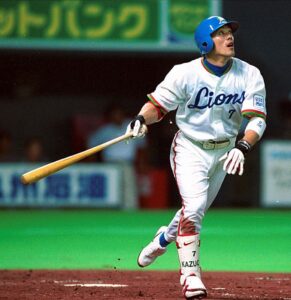
Skills and traits required for baseball coaching
Baseball coaches play a vital role that is directly related to player development and team success.
This requires a coach to have a variety of skills and attributes.
Here we will explain in detail about technical knowledge, leadership skills, communication skills and mental care.
Technical knowledge and leadership
-
Baseball technical knowledgeBaseball coaches are required to have in-depth knowledge of baseball techniques, such as batting, pitching, and fielding. It is important to have a correct understanding of these basic techniques and the ability to teach them to players in an easy-to-understand manner. Having technical knowledge will help you support players in improving their skills and maximize their performance.
-
Tactical understanding and applicationYou also need the ability to understand the tactics and strategies used during a match and communicate them to your players. It is important to be able to change tactics according to the situation of the match and to plan a strategy that exploits the weaknesses of the opposing team.You need the skills to use data analysis to study the playing style of the opposing team and instruct your players on the optimal tactics.
-
Effective coaching is essential to promote player development. Coaching includes the ability to give appropriate technical advice and the skill to teach in a way that players can easily understand. It is also important to create training plans and provide instruction that is tailored to the characteristics and abilities of each player. Coaches provide specific approaches to develop players’ strengths and improve their weaknesses.
-
Continuous learning Baseball techniques and tactics are constantly evolving. Coaches are expected to continue learning the latest training methods and teaching techniques. It is important to gain new knowledge by attending seminars and workshops and interacting with other coaches and experts. This will allow you to provide the latest instruction to your players.
Communication skills and mental care
-
Effective communication Coaches need to be able to communicate effectively with players and staff. It is important to instruct and provide feedback in terms that players can easily understand. It is also important to respect the players’ opinions and feelings and build trust through dialogue. Good communication boosts morale throughout the team and creates a sense of unity.
-
Increasing Motivation To increase the motivation of players, coaches need encouragement and support. When players face difficult situations, it is important to give them appropriate advice and encouragement and to give them self-confidence. Understanding each player’s goals and dreams and supporting their efforts towards them will help maintain and increase their motivation.
-
Mental care Mental care of players is also one of the important roles of a coach. By providing mental care in stressful situations or after a failure, you can help players regain their confidence and focus on the next play. Coaches are required to have basic knowledge of psychology, understand the psychological state of players, and respond appropriately.
-
Team building coaches also carry out activities to foster a sense of unity throughout the team. It is important to promote communication outside of team building events and practice, and to deepen the bonds between players. Creating an environment where the entire team works together toward a common goal will improve team performance.
To be successful as a baseball coach, technical knowledge, leadership ability, communication skills, and mental care skills are essential.
Developing these skills and attributes will help your players develop and improve the performance of your entire team.
Coaches play an important role in supporting the success of their players and are expected to constantly improve themselves and provide the best possible instruction.

What is expected of future baseball coaches?
Baseball coaches of the future will be required to have more diverse qualities and up-to-date knowledge than ever before.
As technology evolves and society changes, the role of the coach is also evolving.
Here, we will take a detailed look at the qualities that will be required of coaches in the future, as well as trends and the latest information in baseball coaching.
Qualities of coaches required for the future
-
Data analysis skills Data analysis plays a key role in modern baseball. Coaches of the future will need the ability to use data to maximize player performance. For example, they will need to analyze batting and pitching data and provide advice to help players improve their skills. They will also need the ability to use data analysis software and tools to plan tactics and prepare for games.
-
It is also important to actively utilize the latest technology . It is necessary to use technology, such as video analysis and training methods using virtual reality (VR), to improve the effectiveness of players’ training. As technology evolves, coaches need to constantly learn the latest tools and software and incorporate them effectively.
-
Flexible communication: The ability to communicate with diverse players is essential for future coaches. Flexible communication skills are necessary to build good relationships with players who have different cultural backgrounds and values. Respecting the individuality of each player and providing effective feedback and support will help maintain and increase the players’ motivation.
-
Mental support abilityThe ability to support the mental health of players is also important. Coaches are required to be able to respond appropriately to the mental challenges that players face, such as high-pressure matches and returning from injuries. By having knowledge of psychology, understanding the mental state of players, and providing appropriate support, players’ performance can be improved.
-
Ethics and Leadership Future coaches are required to have high ethics and leadership. It is important to treat players with fair judgment and sincerity and build trust. They also need leadership skills to bring the whole team together and lead them towards a common goal. They are required to act as a role model for the players and increase team unity.
Baseball coaching trends and the latest information
-
Personalized training: Personalized training tailored to the characteristics of each player is gaining attention. It is important to create individual training programs and provide effective instruction according to the physical strength and technical level of each player. There is a demand for methods that utilize the latest data to provide maximum support for player growth.
-
Conditioning and Recovery There is also growing interest in conditioning and recovery among athletes. Thorough management of athletes’ physical condition is required, including post-practice recovery methods, nutritional management, and improving sleep quality. We incorporate the latest conditioning theories and provide support to help athletes maintain their performance.
-
Evidence-based instructionEvidence -based instruction based on scientific evidence is emphasized. Effective instruction based on the latest research results and proven methodologies is required. This will improve players’ skills, prevent injuries, and support their long-term growth.
-
It is also important to have a global perspective through international competitions and intercultural exchange. By interacting with coaches and players from overseas, you can learn new coaching methods and tactics and apply them to your own team to increase your competitiveness. Experience in international competitions also leads to the coach’s own growth.
Baseball coaches of the future will be required to have a variety of qualities, including the ability to analyze data, utilize technology, be flexible in communication, provide mental support, and have high ethical standards and leadership skills.
In order to adapt to the times ahead and provide the best possible support for player development, it is important to remain open to learning the latest trends and information.
The coach’s own growth leads to the success of the entire team.
